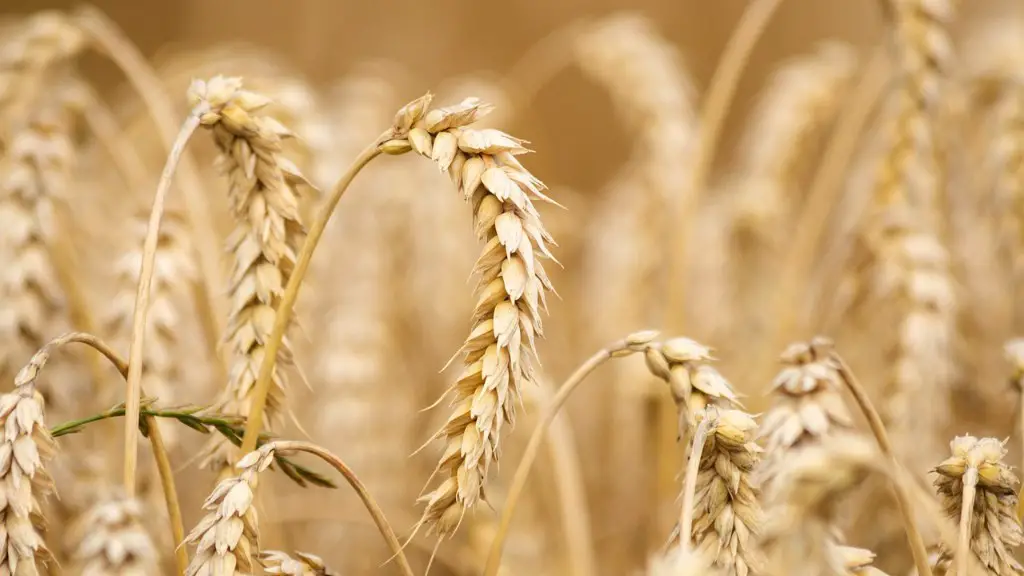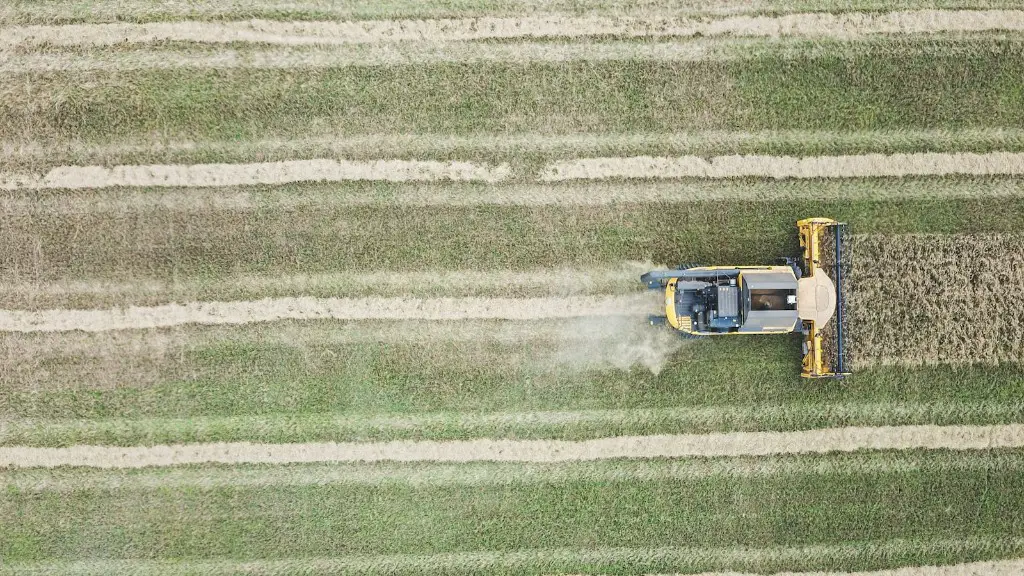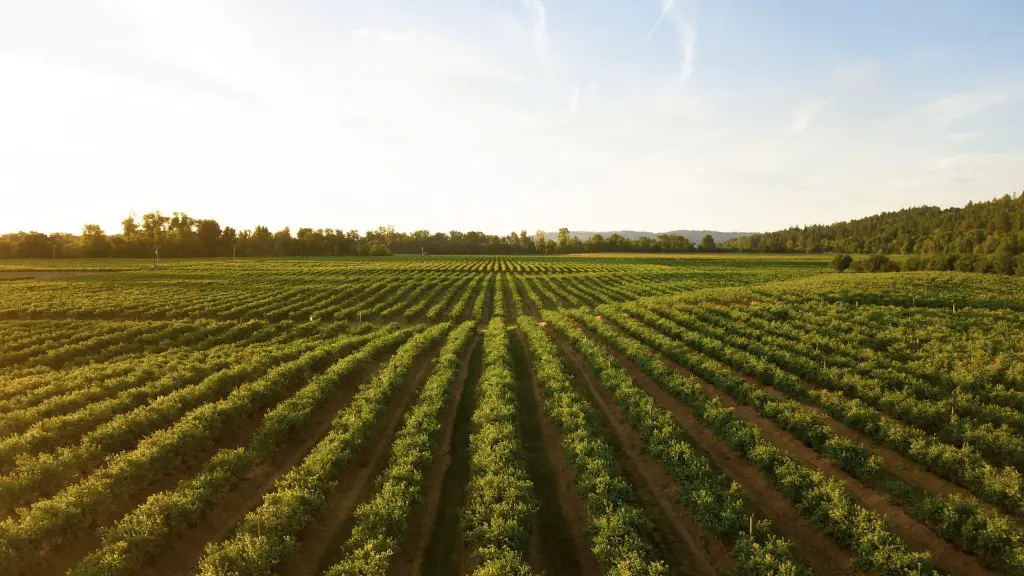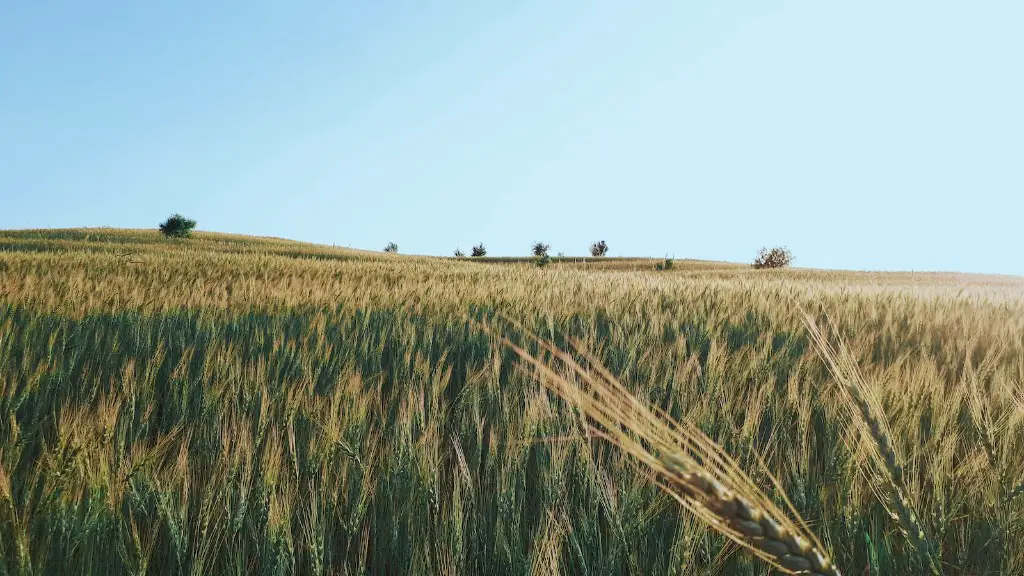The origins of agriculture are thought to date back to around 10,000 BCE, when the first plants were domesticated. The reason why agriculture was invented is not definitively known, but it is likely that early humans began to cultivate plants in order to ensure a reliable food supply. Agriculture allowed for the growth of civilizations, as it allowed for the surpluses of food that were necessary to support large populations. Today, agriculture is a vital part of the global food system, and it plays a significant role in the economy and in the way we live our lives.
There are many theories as to why agriculture was invented, but the most likely explanation is that it was a way to ensure a consistent food supply. In the past, people were hunter-gatherers and only ate what they could find or kill. This meant that there were times when food was scarce, and people went hungry. Agriculture allowed people to grow their own food, so they would always have something to eat.
What was the purpose of agriculture?
Agriculture is essential to human life and economic growth. It involves the cultivation of natural resources to sustain human life and provide economic gain. Agriculture combines the creativity, imagination, and skill involved in planting crops and raising animals with modern production methods and new technologies. This makes it a vital part of the global food system and economy.
The Zagros Mountain range, which lies at the border between Iran and Iraq, was home to some of the world’s earliest farmers. Sometime around 12,000 years ago, our hunter-gatherer ancestors began trying their hand at farming. The Zagros Mountains provided a perfect environment for early farming experiments, with ample rainfall and ample sunlight. The early farmers of the Zagros Mountains were able to thrive and eventually develop into a sophisticated agricultural society. Today, the Zagros Mountains are still home to many farmers, and the region is known for its delicious fruits and vegetables.
What did agriculture invent
Agriculture is one of the most important inventions of humankind. It allowed for the domestication of plants and animals, which led to the development of civilizations. Agriculture began between 7,000 and 10,000 years ago, during the Neolithic era, or the New Stone Age. There were eight Neolithic crops: emmer wheat, einkorn wheat, peas, lentils, bitter vetch, hulled barley, chickpeas, and flax. The Neolithic era ended with the development of metal tools.
The Egyptians were among the first peoples to practice agriculture on a large scale. This was made possible with the development of basin irrigation. Basin irrigation is a type of irrigation in which water is collected in a basin or trough. The water is then distributed evenly over the field. This type of irrigation is very efficient and allows for large-scale agriculture.
How did agriculture benefit us?
The agricultural sector is a vital part of the US economy, contributing a significant amount to the country’s GDP. The sector is responsible for producing the food that we consume, and it also provides many other products and services that are essential to our everyday lives. The agricultural sector employs millions of Americans and supports countless other businesses throughout the country.
Agriculture is the main source of raw materials for many industries. It is also important to international trade, as countries that can produce large quantities of food can export their surplus to other countries. Agriculture also plays a big role in a nation’s revenue, as it is one of the biggest contributors to GDP. Additionally, agriculture provides employment for millions of people around the world. It is also crucial to a country’s development, as it can help to alleviate poverty and improve infrastructure. Finally, agriculture can also help to heal the environment, as it can help to sequester carbon and improve soil health.
How agriculture has changed the world?
The invention of agriculture was a turning point in human history. Farming allowed people to grow all the food they needed in one place, with a much smaller group of people. This led to massive population growth, creating cities and trade. Agriculture allowed for therises of civilizations and the advancement of human knowledge.
The history of agriculture is the story of humankind’s development and cultivation of processes for producing food, feed, fiber, fuel, and other goods by the systematic raising of plants and animals. Prior to the development of plant cultivation, human beings were hunters and gatherers. The development of agriculture allowed for the domestication of plants and animals, which led to the creation of civilizations. Agriculture has played a major role in human history, shaping the way we live and the way we think about the world.
When did agriculture started
Agriculture was a major breakthrough in the development of human civilization. It allowed for the domestication of plants and animals, which led to the development of cities and civilizations. Agriculture has undergone significant development over the past 10,000 years, with the development of new techniques and the introduction of new crops. Today, agriculture is a vital part of the human economy, providing food for billions of people around the world.
The Fertile Crescent was one of the first places where farming was independently invented, but it wasn’t the only one. In fact, farming was independently invented in at least 11 different regions around the world. From Central America to China, people were learning how to domesticate plants and animals and use them to their advantage. This just goes to show how important agriculture is to human civilization.
How did agriculture change the life of early humans?
Agriculture has had a profound impact on human civilization, resulting in important changes to the way that we live. For example, agriculture has led to the development of permanent settlements, as people have given up their nomadic lifestyles and settled down in one place. This has allowed them to grow their own food, rather than having to rely on gathering or hunting. As a result, people no longer have to wander around or move from place to place in search of food. This has led to the development of more complex civilizations, with different social and economic structures.
Agriculture is thought to have originated in a few small hubs around the world, but the Fertile Crescent is probably the most likely place of origin. The Fertile Crescent is a region of the Near East that includes parts of present-day Iraq, Syria, Lebanon, Israel, and Jordan. This region is thought to be the birthplace of agriculture because it has many of the necessary conditions for plant and animal domestication. The Fertile Crescent also has a long history of agriculture, with some of the earliest evidence of agriculture dating back to the ninth millennium BCE.
Where did agriculture first develop
Until recently, it was believed that farming began some 12,000 years ago in the Cradle of Civilization. This is the area that includes Iraq, the Levant, parts of Turkey and Iran, which was also home to some of the earliest known human civilizations. However, new research has suggested that farming may have actually started much earlier, as far back as 23,000 years ago. This would mean that farming was independently “invented” in different parts of the world, rather than spreading from a single origin point. The new findings are based on analysis of stone tools and plant remains found in China.
The earliest farmers may have started protecting plants from birds and animals in order to help them grow and produce ripe seeds. In this way, people became farmers. Over time, other methods of agriculture were developed, but the original motivation for protecting plants may have been to help them flourish.
How did agriculture impact society?
It is true that more abundant food supplies could support denser populations, and farming did tie people to their land. However, small settlements grew into towns and towns grew into cities because people were free to pursue interests other than worrying about where their next meal was coming from. Agriculture allowed people to specialize in different tasks and to trade for goods that they could not produce themselves. This division of labor made societies more efficient and prosperous.
Agriculture is the foundation of all civilizations and any stable economy. It is the process of producing food, fuel, fiber, and other goods by raising plants and animals. Agriculture is essential to human survival and wellbeing.
Final Words
The first agricultural societies began to form about 10,000 years ago, in the warm, fertile regions of the Fertile Crescent. These early farmers began to domesticate plants and animals, and to develop new technologies for clearing land and irrigation. Agriculture allowed people to settle in one place and to build cities and civilizations. Agriculture also led to the development of writing, mathematics, and other sciences.
The answer is not fully known, but there are several theories. One is that early humans began to domesticate plants and animals, which led to the need to cultivate land and store food. Another theory is that the change in climate led to a need to find new food sources, which invented agriculture.




